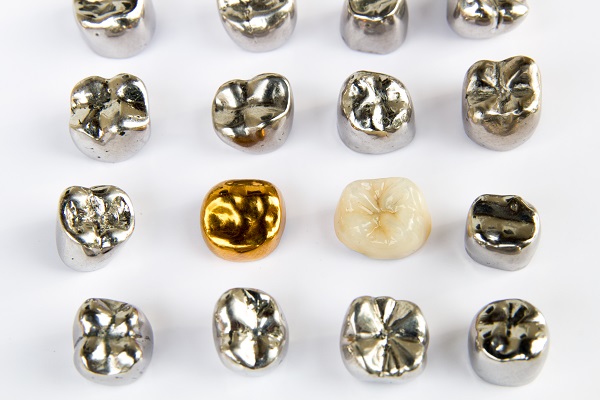Dental Bonding Can Repair the Look of Teeth

Dental bonding might be all you need if you have a discolored, chipped or cracked teeth. The procedure is popular in cosmetic dentistry, and it can enhance the way your smile looks. Your smile is one of the most noticeable parts of your physical appearance, so you want your teeth always looking their best.
Dental bonding is a treatment that consists of the dentist applying composite resins that have been color-matched with the patient's teeth to repair damage or discolored teeth. It is one of the more affordable treatments performed by dentists, and it costs significantly less than getting veneers or crowns.
What to expect when getting dental bonding
Composite bonding is a non-invasive treatment that can be used for cosmetic or therapeutic purposes. It typically does not require the use of an anesthetic unless it is being used to treat tooth decay. Getting a treatment with a composite only requires a single visit to the dentist to restore the appearance of the patient's teeth.
The dentist starts the treatment by selecting a composite that is a similar shade of white as the patient's teeth. The dentist then uses an etching solution to roughen the tooth's surface. This allows for a stronger bond between the patient's tooth and the composite.
The dentist applies the putty-like composite layer by layer. Shaping and hardening each layer as it is applied. The dentist might make some final alterations after all of the layers have been applied before polishing the tooth to complete the treatment.
Below are some reasons why dental bonding might be performed:
- Fixing cracked, broken or chipped teeth.
- Repairing damage caused by tooth decay.
- Increasing the size of a tooth that is shorter than the rest.
- Closing gaps between teeth.
- Hiding stains and discoloration on teeth
It takes about an hour for a dentist to restore a tooth. with composite bonding. There are no significant risks associated with dental bonding. Fixing a tooth with a composite can restore its function and it also restores its appearance.
Taking care of teeth restored with dental bonding
Here are some simple things patients can do after their treatments with composite resins to ensure their restorations last a long time:
- Practice good oral hygiene. This includes brushing twice daily and flossing once each day.
- Avoid hard and crunchy foods that can lead to teeth repairs.
- Avoiding bad habits like chewing ice or biting on fingernails.
- Avoiding tannin-rich foods and beverages that can stain teeth like coffee, red wine and pasta sauce.
- Visit a dentist twice a year for dental cleanings and other preventative treatments. Dentists can touch-up repairs made with composites as needed
Get fast results
Composite bonding can be used to address a variety of issues that affect your teeth; you get immediate results. There is no waiting for a dental lab to make your restoration with composite bonding. Call or visit our San Francisco clinic to learn more about how our dentists can use composites to fix your teeth.
Request an appointment here: http://www.drmakassebi.com or call Dr. Minoo Makassebi, DDS at (415) 296-9111 for an appointment in our San Francisco office.
Check out what others are saying about our dental services on Yelp: Dental Bonding in San Francisco, CA.
Recent Posts
There are many cosmetic dentistry options for you to choose from nowadays when you want to fix your smile. A smile is a social asset that makes people appear more sociable and attractive. Not being happy with the way your smile looks often leads to lower self-esteem and feeling self-conscious when interacting with others.That is…
Looking for information on how dental bonding is used for cosmetic dentistry reasons? Dental bonding is a procedure in which a dentist applies a tooth-colored composite resin to one or more teeth in order to repair them. With proper care, bonding can last upwards of 10 years before needing a touch-up or replacement.Want to know…
Dental crowns are a great restoration option used both on their own and in conjunction with other procedures such as root canals and dental implant placements. They are often recommended after a root canal procedure is complete, however, it is not 100% necessary. Nonetheless, general dentists highly advise for them to be placed as they ensure…
You might need to have a dental checkup to see if you need a root canal if the pulp gets damaged. The pulp could get hurt because of trauma or an injury, and untreated oral health issues can also cause it. A dental checkup is a tool your dentist uses to determine if you need…



